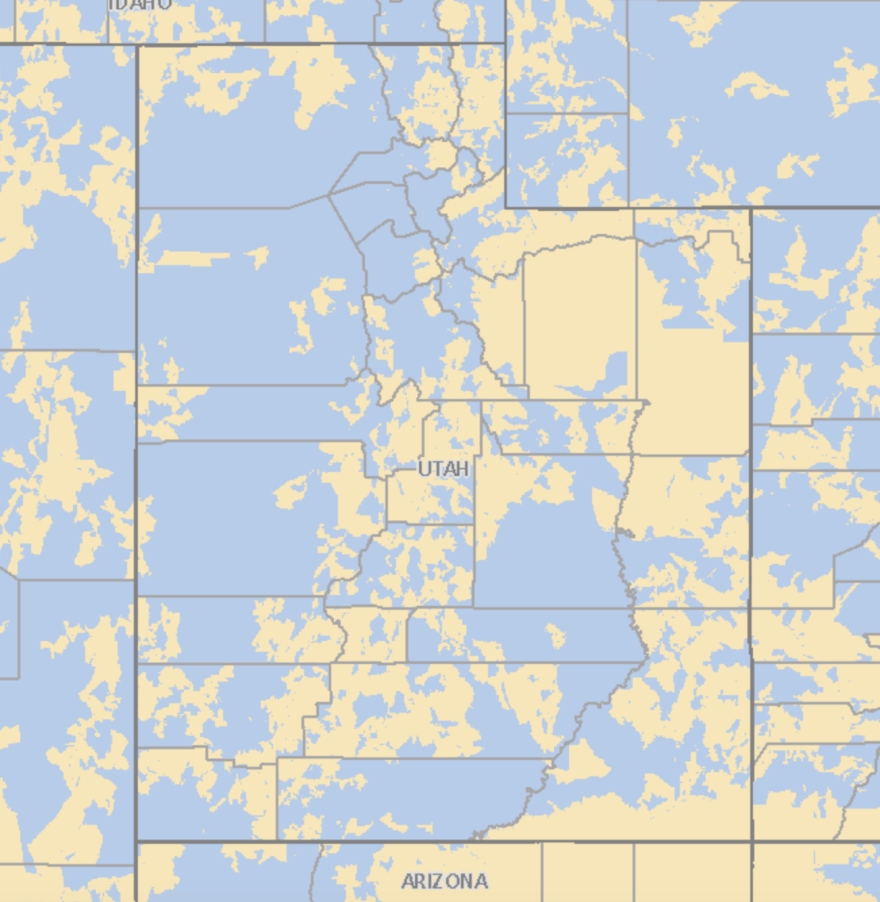The Census Bureau has suspended field operations across the U.S. and moved operation deadlines back in response to the coronavirus outbreak. But the bureau is still encouraging all households to respond as soon as possible — online, by phone, or by mail.
“By today, every mailbox in the country should have received an invitation to participate in the census,” said Al Fontenot, the bureau’s associate director for decennial census programs.
Almost 19 million people across the U.S. have responded so far. Preliminary self-response data released by the bureau on Friday afternoon shows 14.6% of Utahns had submitted a census response, which was 0.5% higher than the national average. Cache County had the highest response rate in Utah, at 20.7%. While in many rural counties in Utah, the response rate was below 1%.
On a call with reporters Friday, the Census Bureau said that the national response rate is currently “on track”, despite disruptions from the coronavirus. However, field operations have been suspended, which will delay enumeration of hard-to-count populations, like college students, homeless people, and those who live in rural areas and on tribal land.
“Of all of our worst nightmares of things that could have gone wrong with the census we did not anticipate this set of actions,” Fontenot said, referring to delays related to the coronavirus.
The Census Bureau uses a method called “update-leave” to count residents in rural areas where most people do not have mail delivered to their home. It involves a census worker visiting each household and leaving a physical questionnaire for residents to fill out. That operation started on Sunday and was suspended on Wednesday. It will resume on March 29 at the earliest.
“This hand delivery of questionnaires affects less that 5% of the nation’s addresses, and does not involve direct contact with individual house-holders,” said Tim Olson, associate director for field operations.

Counts of people living in dormitories, nursing homes, prisons, jails, and other group housing, as well as people experiencing homelessness were scheduled to begin in late March and early April, according to the bureau. But both of those operations are now on hold until at least mid-to- late April.
The effort to count those who have not responded to the census, called “non-response follow up”, typically starts on May 13, according to the bureau, and involves at least 500,000 census workers. That process will now start no earlier than May 28.
“As we continue to monitor this evolving situation, we will adjust census taker and survey operations as necessary in order to follow the guidance of federal, state and local authorities,” Olson said.
The Census Bureau has suspended all activities related to hiring and onboarding until April 1 too, but will continue recruiting temporary workers to help with field operations and non-response follow up. The bureau said it will likely need more workers due to delays, and encourages anyone interested to apply online.
The final deadline for enumeration has also been extended from July 31 to August 14. But, by law, the bureau must still deliver the results of the 2020 census to the president and Congress by December 31.
Kate Groetzinger is a Report for America corps member who reports from KUER's Southeast Bureau in San Juan County. Follow Kate on Twitter @kgroetzi




